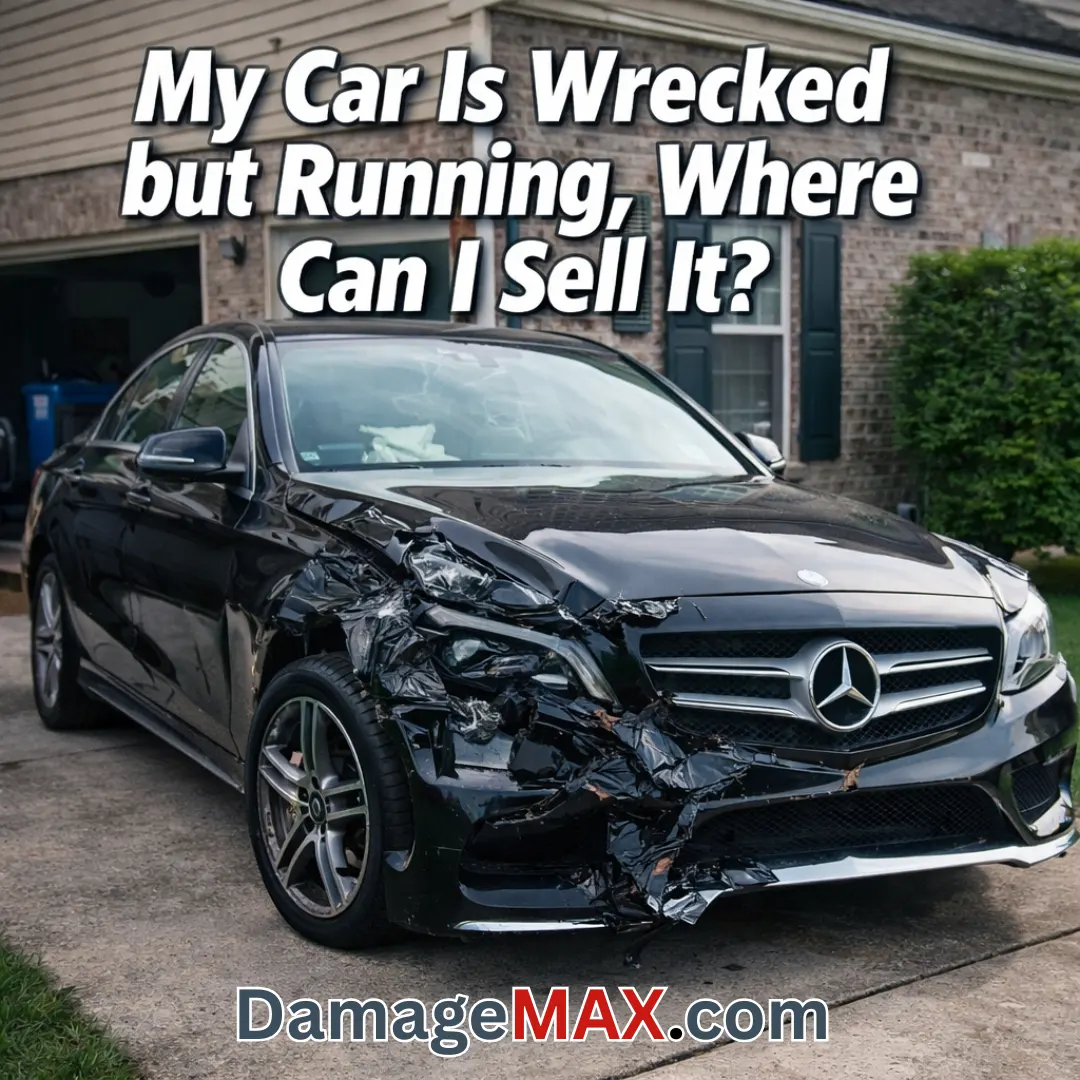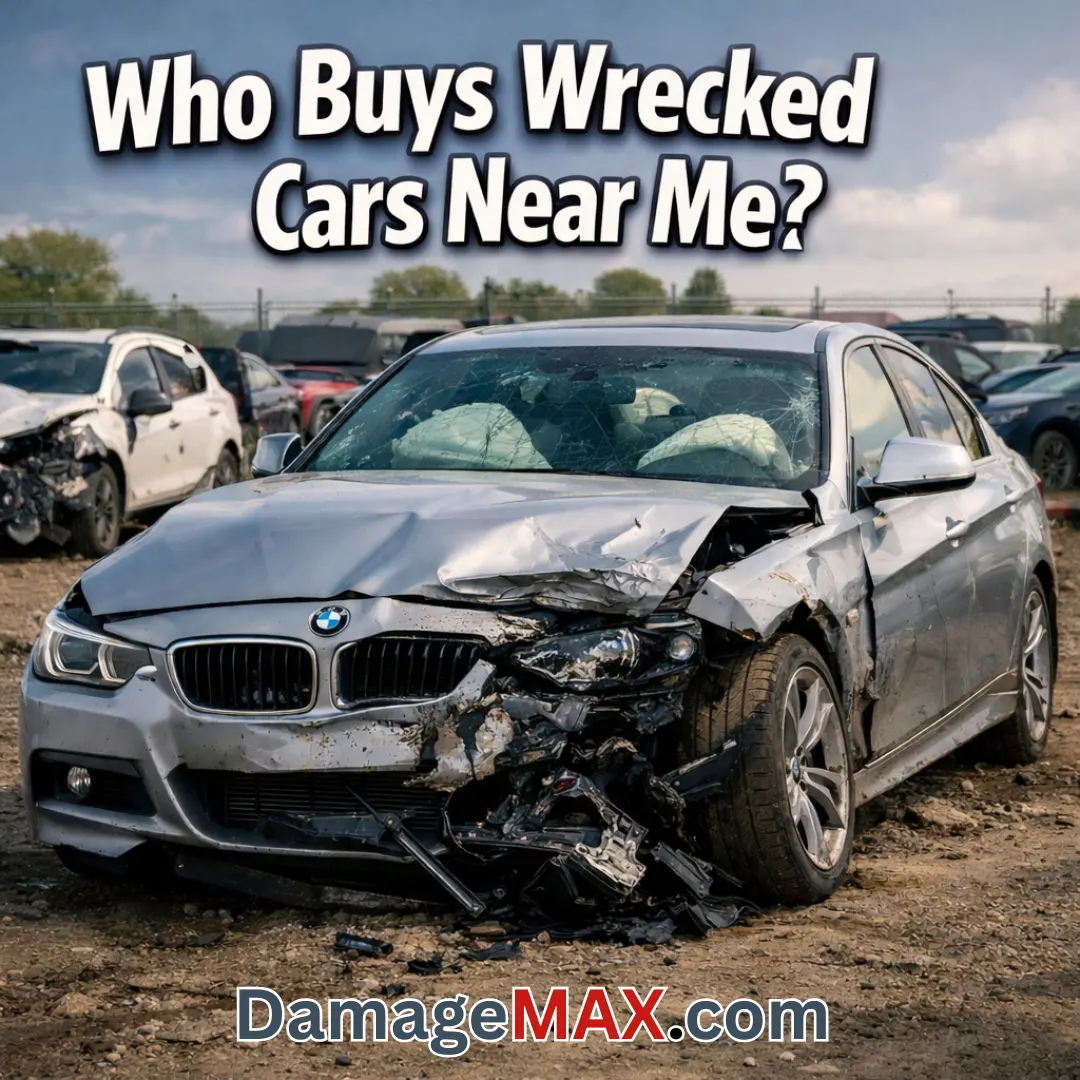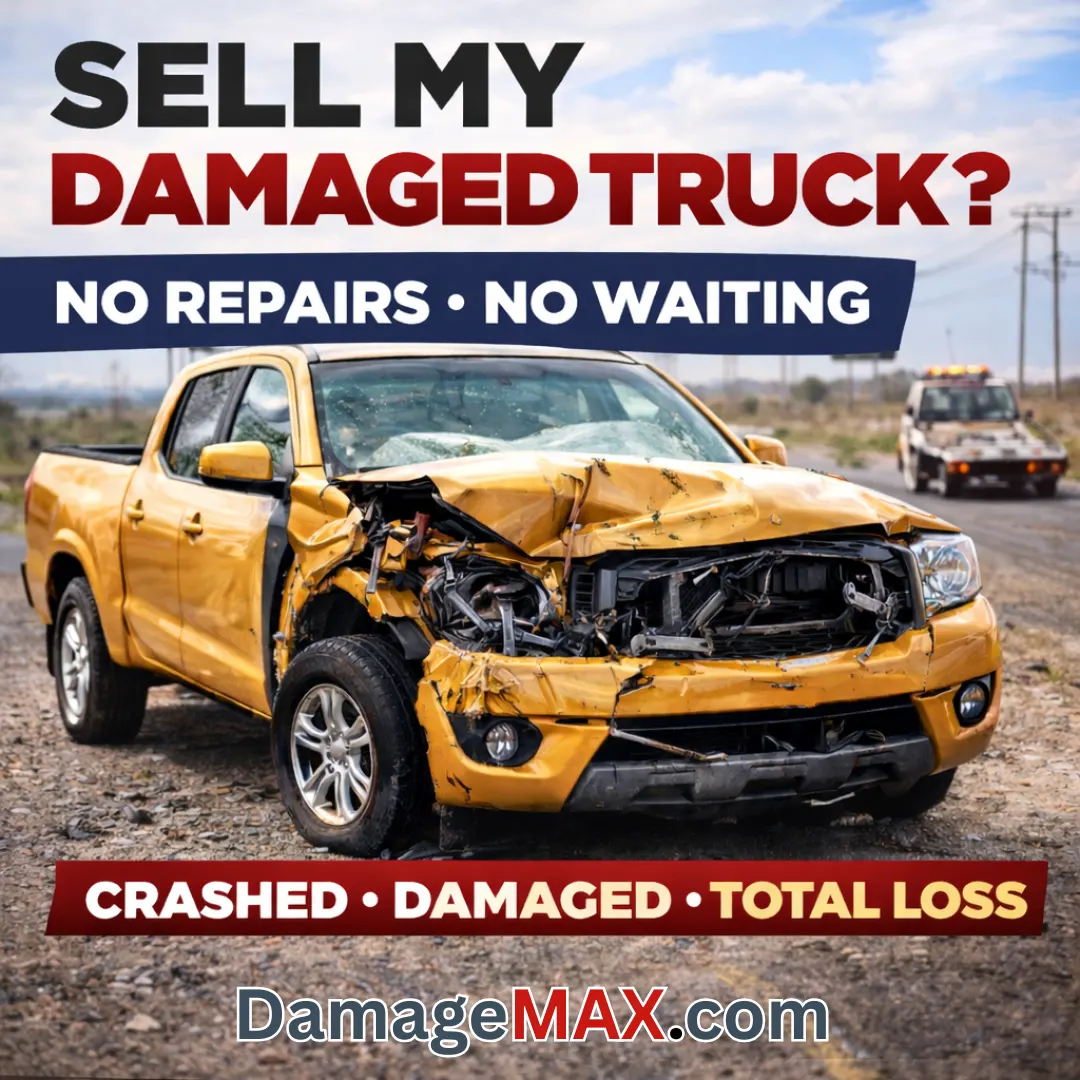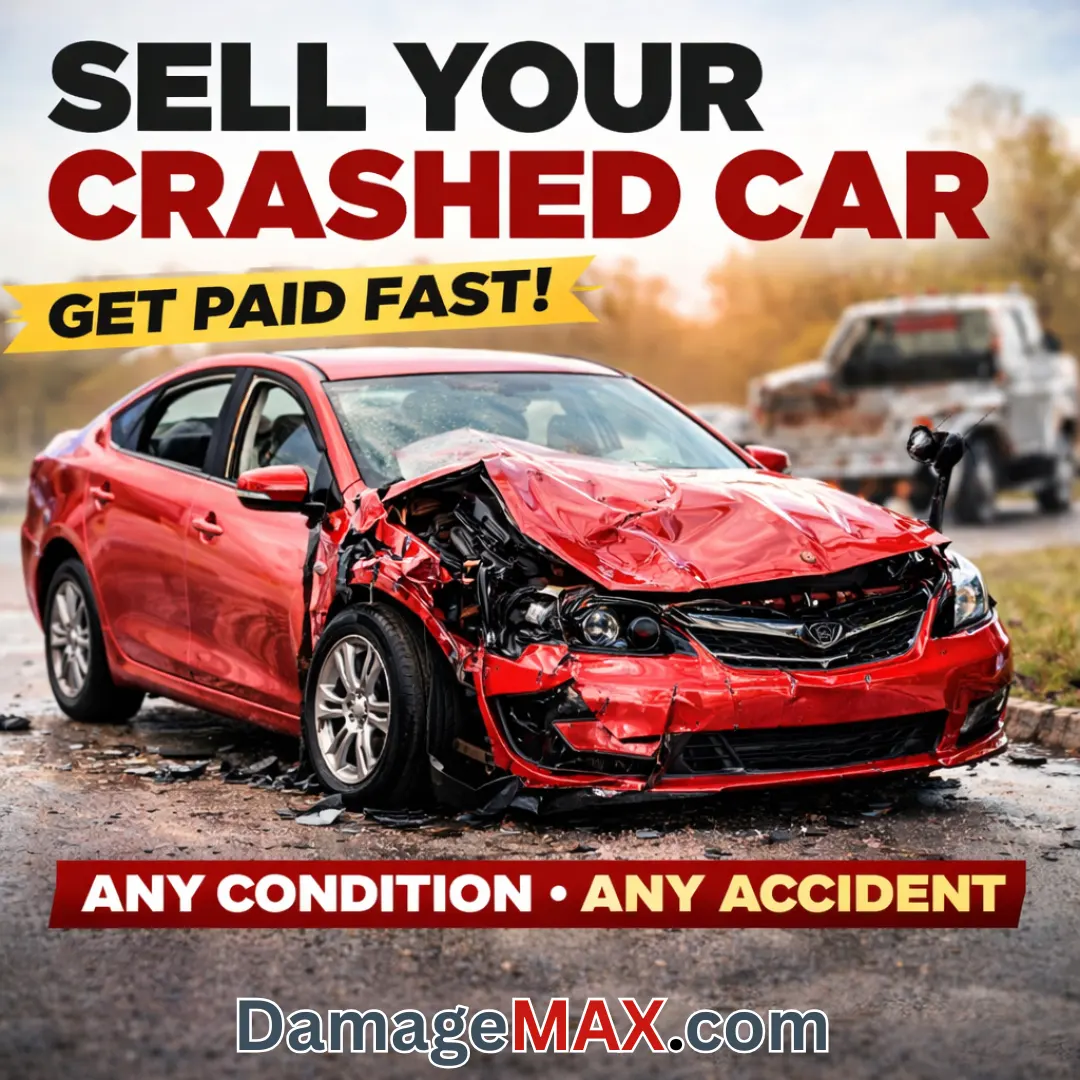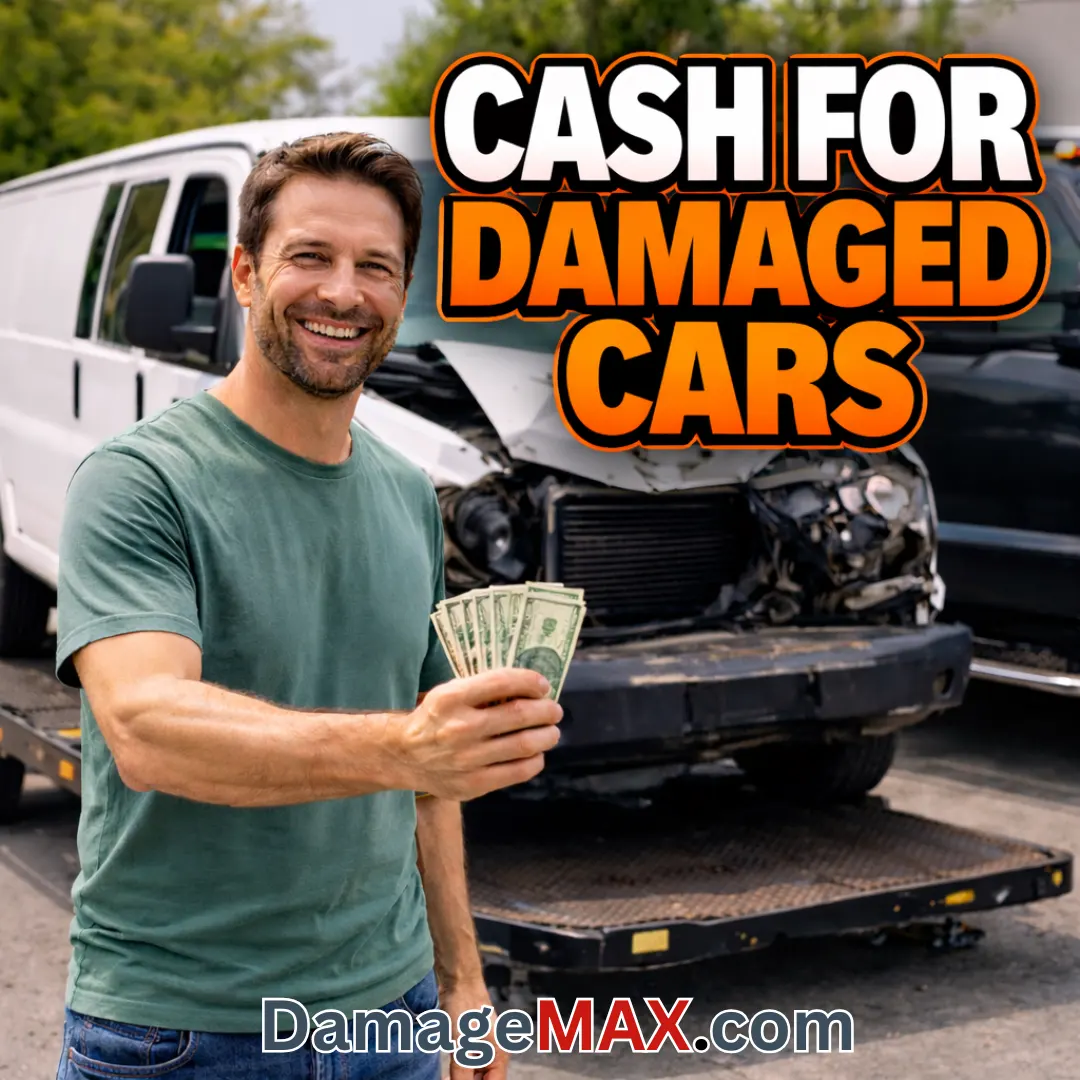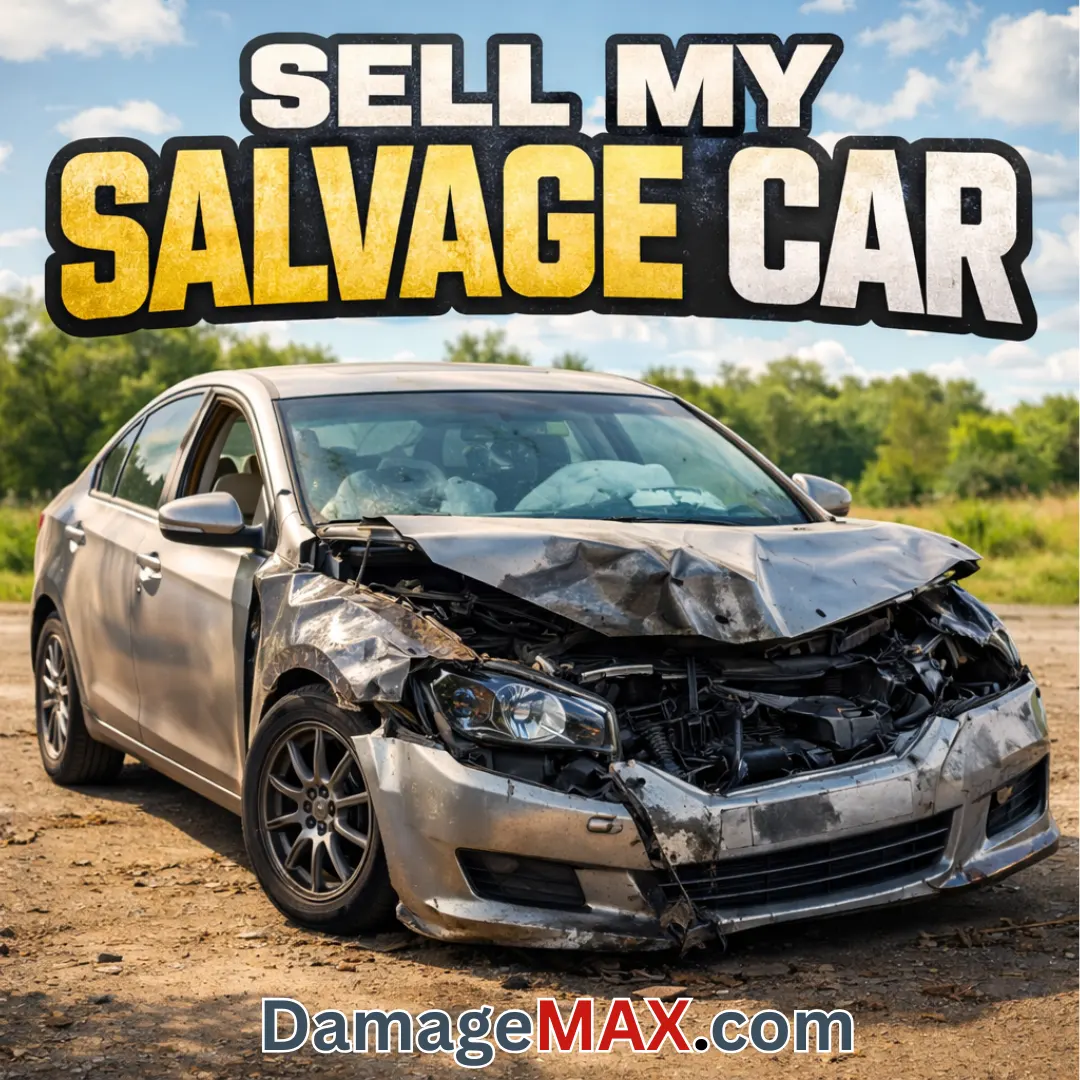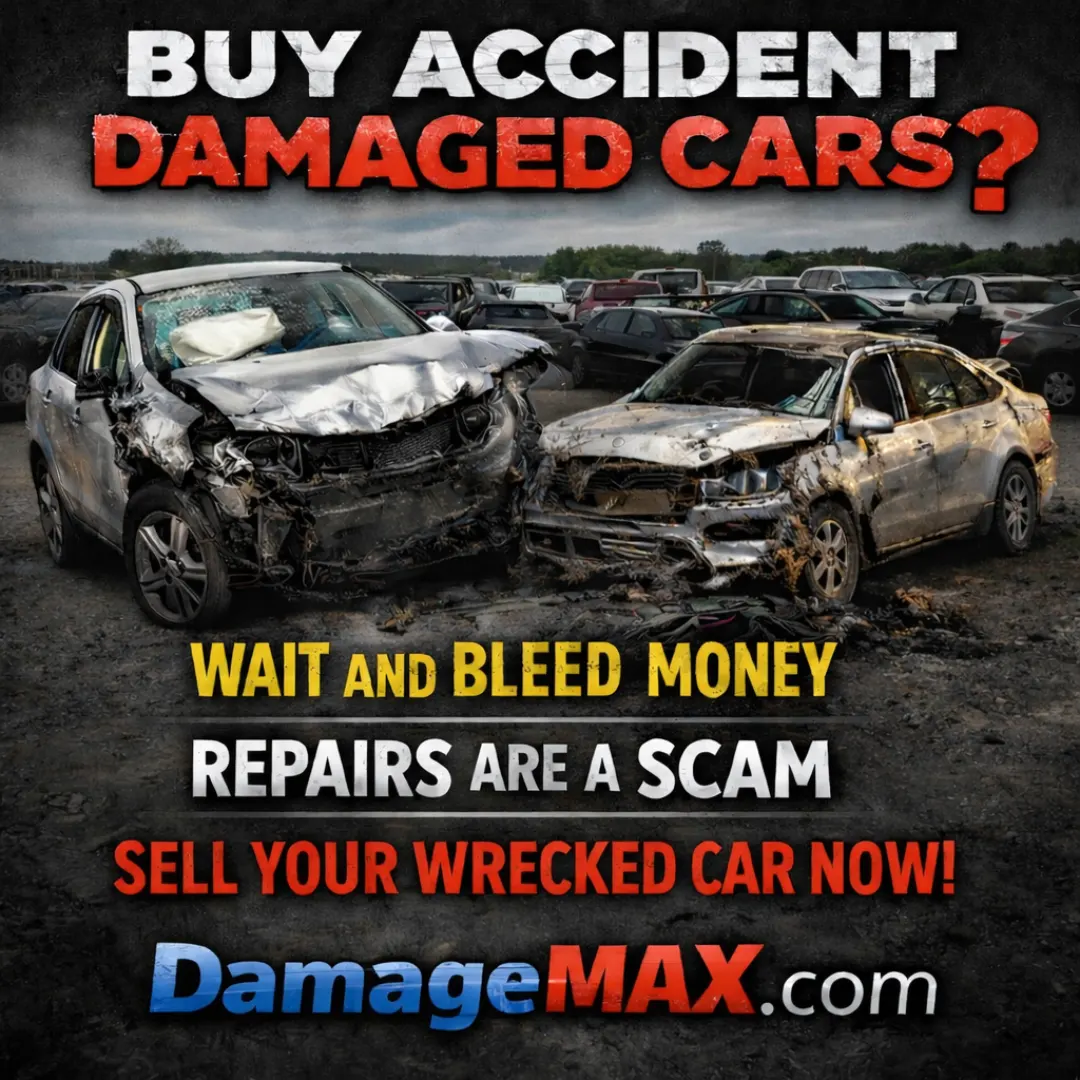
When a vehicle is wrecked, most owners don’t shop options. They panic, assume the car is “basically junk,” and call the closest junkyard. That decision feels fast and simple, but it’s also how thousands of dollars quietly disappear.
Yes, junkyards buy wrecked cars. But buying wrecked cars and paying what they’re actually worth are two very different things. The difference comes down to how the buyer defines value. Junkyards define value as scrap. DamageMAX defines value as what’s still recoverable.
That distinction changes everything.
How Junkyards Really Value Wrecked Vehicles
Junkyards operate on one primary metric: metal. Even when a vehicle has usable parts, strong drivetrains, or rebuild potential, the offer is usually anchored to scrap weight and local metal prices. That keeps junkyard offers low and predictable.
From their perspective, it makes sense. Junkyards are designed to process volume, not maximize individual vehicle value. Accident history doesn’t matter. Running condition barely matters. A wrecked
SUV with a healthy engine often gets priced the same as one that’s completely dead. That’s why sellers are often shocked when a vehicle they thought was “worth something” gets a number that barely covers a tow bill.
A wrecked SUV with a healthy drivetrain and strong parts demand might be worth thousands in the right market, but at a junkyard, it often gets priced like a pile of metal with wheels.
Here’s the real reason junkyard offers and damage-buyer offers aren’t even close:
Where the Value of a Wrecked Car Comes From
Value Source |
Junkyard |
DamageMAX |
|---|---|---|
Scrap Metal Weight |
✔️ Primary focus |
❌ Minimal factor |
High-Demand Parts |
❌ Rarely factored |
✔️ Fully valued |
Drivetrain & Engine |
❌ Ignored if damaged |
✔️ Carefully evaluated |
Rebuild Potential |
Market Demand | ✔️ Nationwide |
Accident History | ✔️ Priced into offer |
✔️ Expected and priced |
Final Seller Payout | Low |
Highest possible |
Why DamageMAX Pays More for Wrecked Cars
We were built specifically for damaged, wrecked, and totaled vehicles. Instead of defaulting to scrap logic, they evaluate what still has value. mechanical components, parts demand, and market opportunity across multiple regions.
That’s why vehicles that junkyards dismiss often receive significantly higher offers from DamageMAX.
Accident history isn’t a red flag, it’s already factored in. Deployed airbags, frame damage, non-running conditions, and insurance total losses don’t disqualify a vehicle. They define how it’s priced.
This approach eliminates the repair trap. Sellers aren’t pressured to fix vehicles that will never regain retail value. They’re paid based on reality, not hope.
Speed Is Easy. Value Is Smarter.
Junkyards are fast. No argument there. But fast doesn’t mean fair.
Most sellers don’t want to simply get rid of their wrecked car, they want the most money possible without wasting time or throwing good money after bad. That’s where we consistently win!
If your vehicle is wrecked, totaled, dented, or non-running and you’re deciding between a junkyard and a damage-focused buyer, the difference is clear.
Junkyards crush value. DamageMAX recovers it. And that’s why DamageMAX.com pays more.


